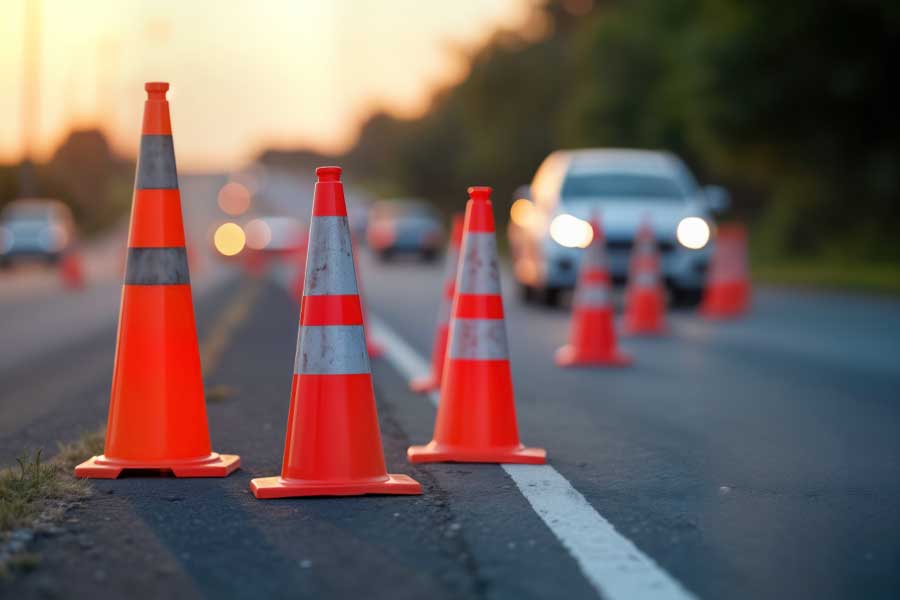Why DUI Checkpoints Increase Around July 4th
Independence Day is one of the busiest travel holidays in Colorado, and law enforcement increases DUI (Driving Under the Influence) checkpoints throughout the state. These sobriety checkpoints are legal in Colorado and are intended to deter drunk driving and protect public safety. But while these stops are legal, your rights do not disappear when you’re pulled over.
Are DUI Checkpoints Legal in Colorado?
Yes. Under Colorado law and Supreme Court precedent (Michigan Dept. of State Police v. Sitz, 496 U.S. 444 (1990)), sobriety checkpoints are permitted as long as they meet specific legal standards. These include:
- A neutral formula for stopping vehicles (e.g., every 3rd car)
- Advance public notice of the checkpoint location
- Minimal intrusion to drivers
- Clear signage and uniformed officers
Failure to comply with these protocols can lead to a challenge of any arrest or evidence obtained at the stop.
Your Rights at a Colorado DUI Checkpoint
At a DUI checkpoint, you are required to:
- Provide your driver’s license, vehicle registration, and proof of insurance
- Comply with basic requests (e.g., pull over, roll down window)
However, you are not required to:
- Answer questions like “Have you been drinking?”
- Consent to a search of your vehicle without probable cause
- Perform field sobriety tests unless arrested
You do have the right to remain silent under the Fifth Amendment. Politely inform the officer, “I choose to remain silent,” if you prefer not to answer questions.
Can You Refuse a Breathalyzer in Colorado?
Technically, yes—but with serious consequences. Under Colorado’s Express Consent Law (C.R.S. 42-4-1301.1), by driving in the state, you have automatically consented to chemical testing (blood, breath, or urine) if you’re arrested for DUI. Refusing a breathalyzer test after arrest can lead to:
- Automatic license suspension for 12 months (first offense)
- Requirement of an ignition interlock device
- Use of refusal as evidence in court
Before arrest, however, you can decline a preliminary breath test (PBT) without penalty if you’re over 21 and not a commercial driver.
Can You Turn Around to Avoid a Checkpoint?
Legally, yes—as long as you do so safely and without violating traffic laws. Turning around before a checkpoint may raise suspicion, but it is not itself illegal. However, making an illegal U-turn, running a red light, or committing another traffic offense gives officers legal grounds to stop you.
Can You Get a Seatbelt Ticket at a DUI Checkpoint?
Yes. Colorado law allows officers to issue citations for seatbelt violations during a checkpoint stop. Under C.R.S. 42-4-237, failing to wear a seatbelt is a primary offense for adults in the front seat. That means you can be ticketed solely for not wearing a seatbelt, even if no other violations are found.
For children under 16, additional requirements apply under C.R.S. 42-4-236, and violations involving child restraints may carry steeper penalties. Since DUI checkpoints involve a lawful stop, officers can observe and act on any visible violations, including unbuckled passengers.
If You’re Arrested at a DUI Checkpoint
If you are arrested at a checkpoint, your next steps are crucial. Anything you say can be used against you. Ask to speak to a lawyer and avoid volunteering information. Your legal team can evaluate whether the checkpoint complied with constitutional requirements and whether your rights were violated.
What to Know This July 4th Weekend
Celebrating the Fourth of July should be about freedom—not facing unexpected legal trouble. If you or a loved one is stopped or arrested at a Colorado DUI checkpoint, don’t wait. Contact Boal Law for experienced, aggressive defense from a former prosecutor who knows how the system works—and how to challenge it.
Call us today at (719) 203-6339 or schedule a consultation online.

